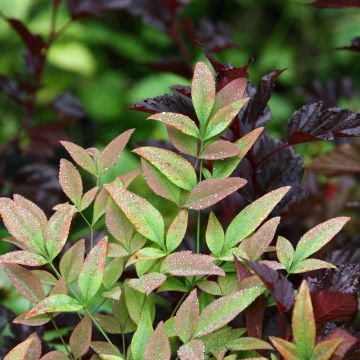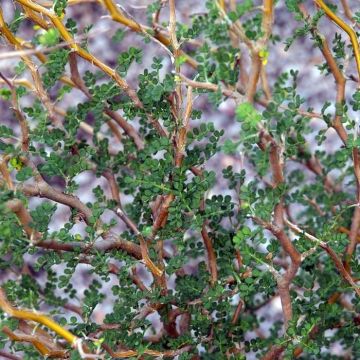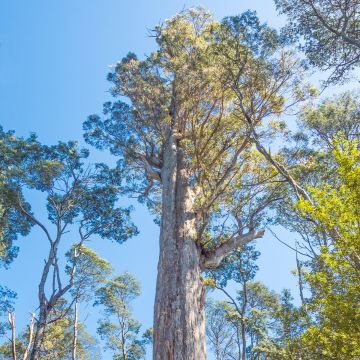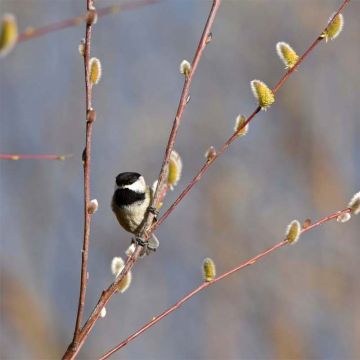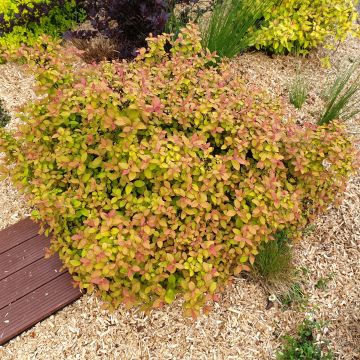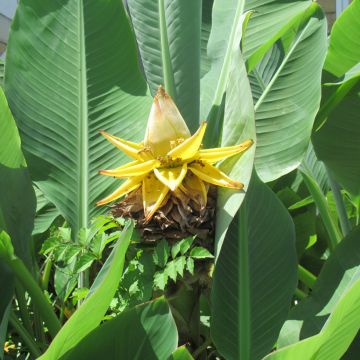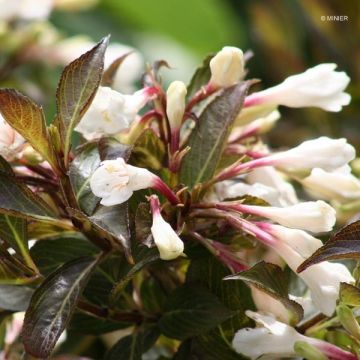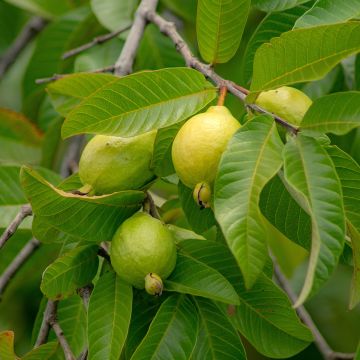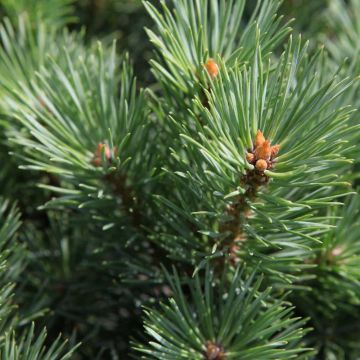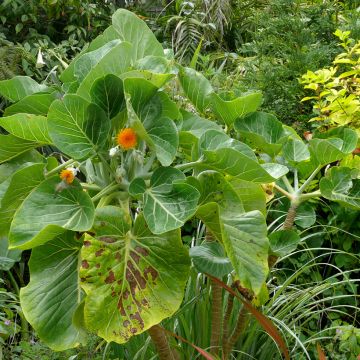Shipping country and language
Your country of residence may be:
Your country of residence is:
For a better user experience on our website, you can select:
Your shipping country:
Andorra
Austria
Belgium
Bulgaria
Canada
Chile
Croatia
Cyprus
Czechia
Denmark
Estonia
Finland
France
Germany
Greece
Hungary
Iceland
Ireland
Italy
Latvia
Lithuania
Luxembourg
Malta
Monaco
Netherlands
Poland
Portugal
Romania
Slovakia
Slovenia
Spain
Sweden
Switzerland
United Kingdom
We only deliver seed and bulb products to your country. If you add other products to your basket, they cannot be shipped.
Language:
French
German
Spanish
English
My Account
Hello
My wish lists
Plantfit
Log in / Register
Existing customer?
New customer?
Create an account to track your orders, access our customer service and, if you wish, make the most of our upcoming offers.
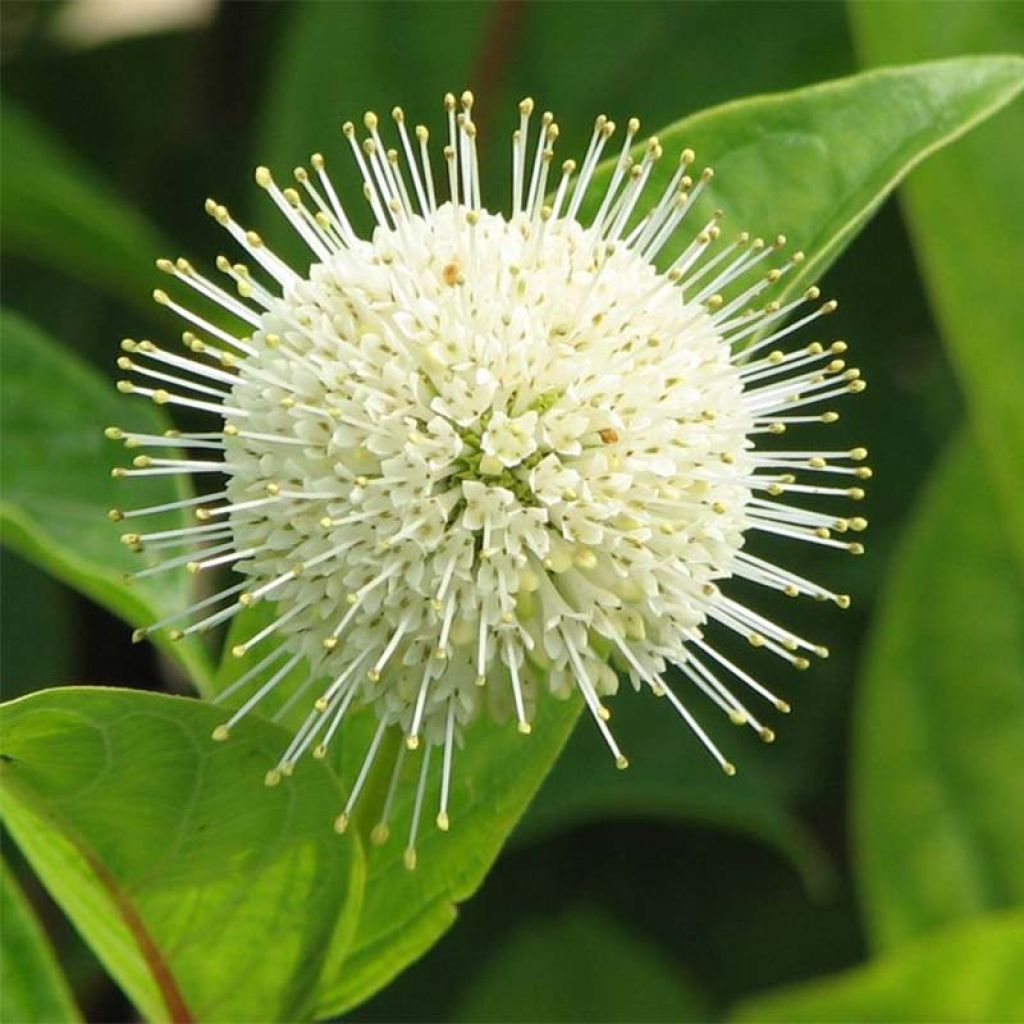

Cephalanthus occidentalis Fiber Optics
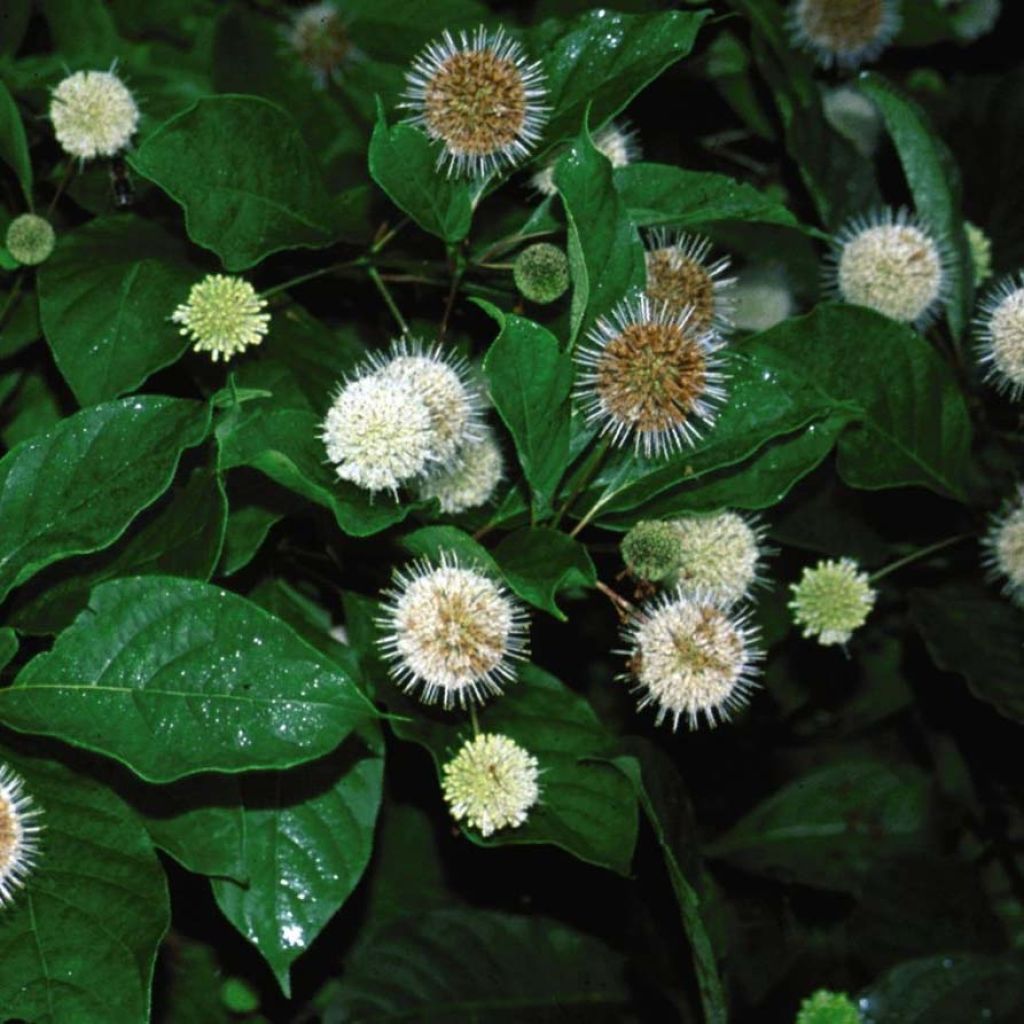

Cephalanthus occidentalis Fiber Optics
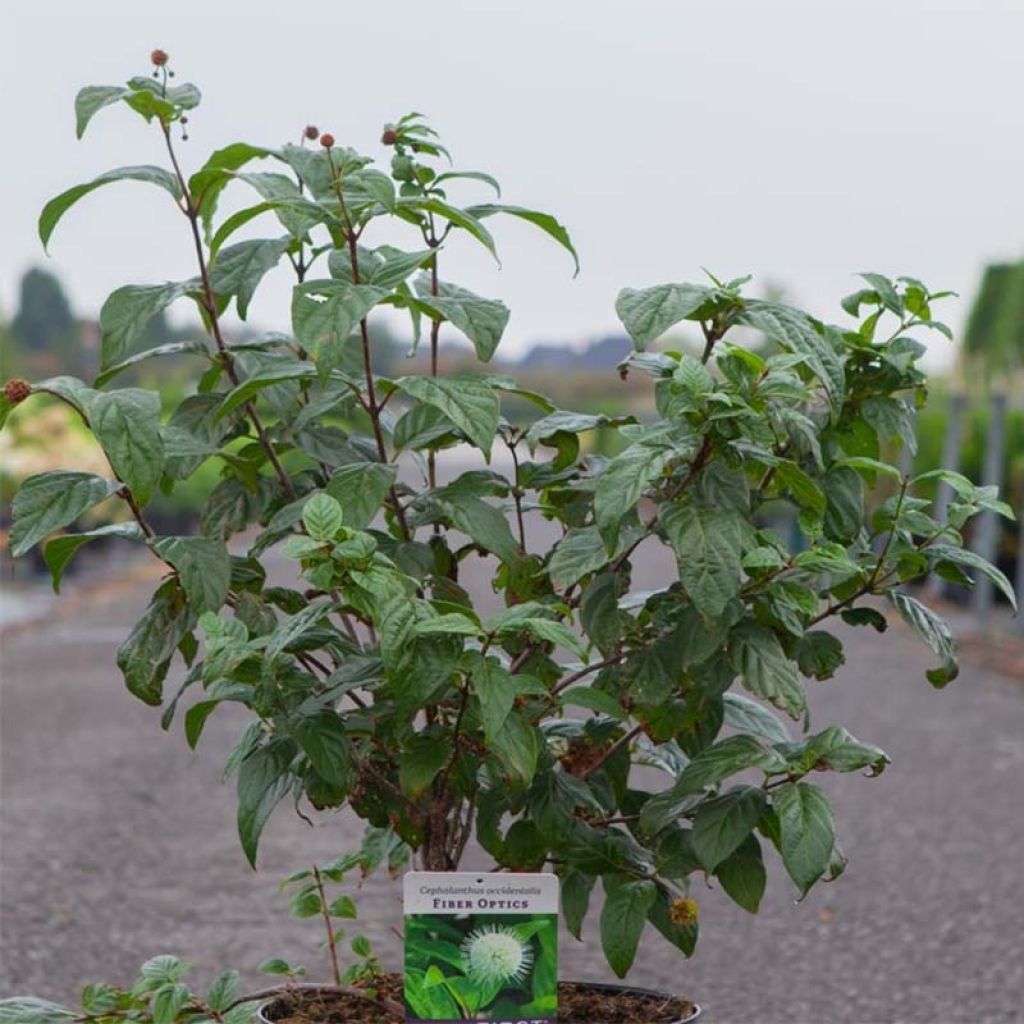

Cephalanthus occidentalis Fiber Optics
Cephalanthus occidentalis Fiber Optics
Cephalanthus occidentalis Fiber Optics®
Button Bush, Button Willow, Globe-flowered bush, Honeybells, Little Snowballs, Swamp Globeflower, White Pond - Dogwood
Buds are starting to appear, looking forward to seeing them in leaves and flowers. I hope the planting location suits them well.
Cecile, 15/04/2023
Order in the next for dispatch today!
Dispatch by letter from €3.90.
Delivery charge from €5.90 Oversize package delivery charge from €6.90.
More information
This item is not available in your country.
Schedule delivery date,
and select date in basket
This plant carries a 24 months recovery warranty
More information
We guarantee the quality of our plants for a full growing cycle, and will replace at our expense any plant that fails to recover under normal climatic and planting conditions.
From €5.90 for pickup delivery and €6.90 for home delivery
Express home delivery from €8.90.

Does this plant fit my garden?
Set up your Plantfit profile →
Description
The Cephalanthus occidentalis Fiber Optics is an improvement of the species, presenting a more compact habit and moderate growth, not exceeding 1.50 m (4 ft 11 in) in all directions. This bush is cultivated for its original and bright flowering with tiny narrow, cream-white flowers, gathered in perfect spheres, adorned with fine and prominent stamens. They release a pleasant fragrance and attract a large number of bees and butterflies. Bright red fruits, similar in appearance to arbutus, follow, standing out from its large, oval, dark green foliage, colouring the garden until winter. The seeds are adored by birds. It is a very robust bush that perfectly withstands freezing temperatures and is suitable for cool to wet soils, normal to heavy, even tolerating temporary flooding and partial shade. It blooms better in the sun and planting in limestone or dry soil should be avoided. It is an ornamental plant, suitable for enhancing pond banks or flower beds in not too dry soil, with other flowering perennials.
Cephalanthus occidentalis belongs to the Rubiaceae family, just like Gardenia, coffee or quinine. This deciduous and very hardy bush is native to North America, specifically wet to marshy areas in Eastern Canada and the United States. Its distribution range extends to Mexico and Cuba where it often forms very dense groups. Its grey-brown bark cracks with age, exfoliating in thick flakes. Tolerating the shade well, Buttonbush are much more floriferous in the non-scorching sun.
The cultivar 'Fiber Optics', obtained in 2005 in the USA by breeder Jon Burns, is distinguished mainly by a much more compact habit and reduced growth. It quickly forms a very dense bush, producing numerous highly branched stems from its base. At maturity, the bush will reach approximately 1.50 m (4 ft 11 in) in all directions. The grey-brown branches bear deciduous leaves that bud late in spring, taking on coppery-red tones. They are leathery, 10 cm (3.9 in) long, ovate, lanceolate, with shiny olive-green to dark green on the upper side before turning dark green, lighter underneath, with lighter veins giving the lamina a waffle-like appearance. The autumn foliage shows a beautiful golden yellow colour, sometimes tinged with coppery-red before falling. From August to September, depending on the climate, for approximately 8 weeks, the unusual flowering of this plant unfolds. At the tips of the branches of the year, a long branched petiole appears, each branch bearing a very dense globular flower head measuring approximately 3 cm (1.2 in) in diameter. Each inflorescence or 'pom-pom' is composed of tiny tubular cream-white flowers with prominent yellow stamens resembling pinheads. This fragrant, nectar-bearing and honey-producing flowering attracts many pollinating insects. The fruit is a round, very bright red capsule, downy in appearance, measuring 2 cm (0.8 in) in diameter, which remains on the branches until winter. The root system of Cephalanthus is superficial, making it sensitive to lack of water but easy to transplant.
Cephalanthus occidentalis 'Fiber Optics' is a beautiful bush that produces honey and has an ornamental appearance. It thrives in soils that retain moisture and in humid areas like marshes or waterlogged surroundings. This makes it a great addition to pond borders or for planting alongside other water-loving plants like Japanese irises, ligularias, astilbes, or filipendulas. However, it's not limited to these areas and can grow comfortably in any soil that's not excessively high in limestone and doesn't dry out. It's versatile enough to be integrated into a small flowering hedge or a low shrub bed alongside other plants like hedge honeysuckles, evergreen or deciduous barberries, flowering currants, dwarf lilacs, and dogwoods. Its compact size makes it perfect for container or pot cultivation, with regular watering and fertilising.
Cephalanthus occidentalis Fiber Optics in pictures


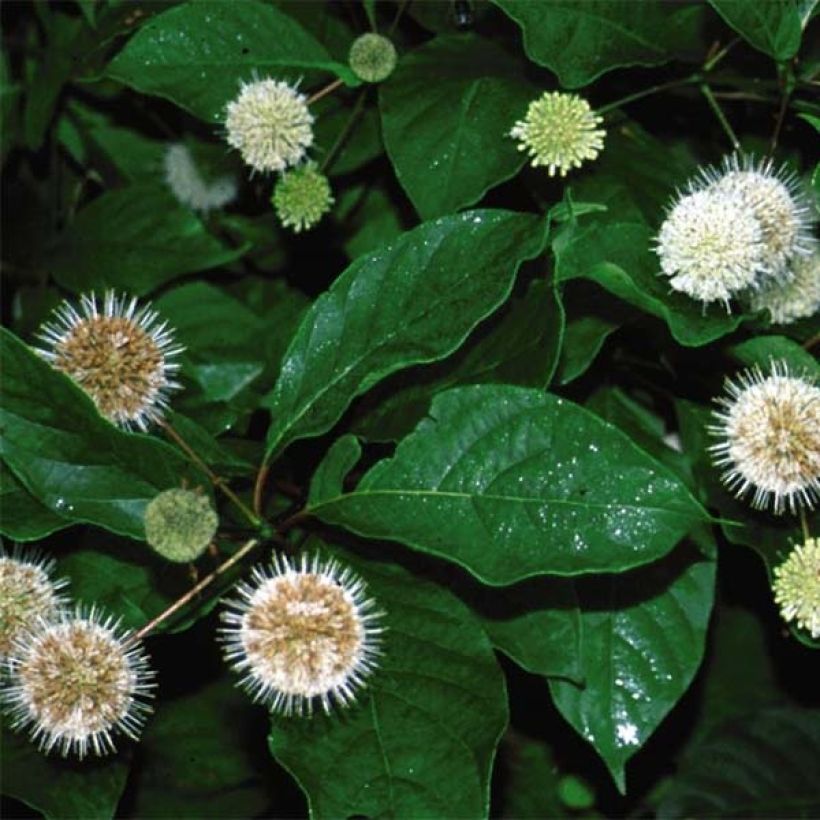



Plant habit
Flowering
Foliage
Botanical data
Cephalanthus
occidentalis
Fiber Optics®
Rubiaceae
Button Bush, Button Willow, Globe-flowered bush, Honeybells, Little Snowballs, Swamp Globeflower, White Pond - Dogwood
Cultivar or hybrid
Other Cephalanthus - Button Bush
Planting and care
When planting Cephalanthus occidentalis 'Fiber Optics', choose autumn or early spring and soil that stays moist or damp all year. It grows well in most soils, but avoid too much limestone. To improve your garden soil, mix it with leaf compost, coarse sand, and well-rotted compost. Mulch the soil to keep it fresh, and water it regularly. Plant it in a sunny, not too hot area, or in partial shade.
Planting period
Intended location
Care
- , onOrder confirmed
Reply from on Promesse de fleurs
Haven't found what you were looking for?
Hardiness is the lowest winter temperature a plant can endure without suffering serious damage or even dying. However, hardiness is affected by location (a sheltered area, such as a patio), protection (winter cover) and soil type (hardiness is improved by well-drained soil).

Photo Sharing Terms & Conditions
In order to encourage gardeners to interact and share their experiences, Promesse de fleurs offers various media enabling content to be uploaded onto its Site - in particular via the ‘Photo sharing’ module.
The User agrees to refrain from:
- Posting any content that is illegal, prejudicial, insulting, racist, inciteful to hatred, revisionist, contrary to public decency, that infringes on privacy or on the privacy rights of third parties, in particular the publicity rights of persons and goods, intellectual property rights, or the right to privacy.
- Submitting content on behalf of a third party;
- Impersonate the identity of a third party and/or publish any personal information about a third party;
In general, the User undertakes to refrain from any unethical behaviour.
All Content (in particular text, comments, files, images, photos, videos, creative works, etc.), which may be subject to property or intellectual property rights, image or other private rights, shall remain the property of the User, subject to the limited rights granted by the terms of the licence granted by Promesse de fleurs as stated below. Users are at liberty to publish or not to publish such Content on the Site, notably via the ‘Photo Sharing’ facility, and accept that this Content shall be made public and freely accessible, notably on the Internet.
Users further acknowledge, undertake to have ,and guarantee that they hold all necessary rights and permissions to publish such material on the Site, in particular with regard to the legislation in force pertaining to any privacy, property, intellectual property, image, or contractual rights, or rights of any other nature. By publishing such Content on the Site, Users acknowledge accepting full liability as publishers of the Content within the meaning of the law, and grant Promesse de fleurs, free of charge, an inclusive, worldwide licence for the said Content for the entire duration of its publication, including all reproduction, representation, up/downloading, displaying, performing, transmission, and storage rights.
Users also grant permission for their name to be linked to the Content and accept that this link may not always be made available.
By engaging in posting material, Users consent to their Content becoming automatically accessible on the Internet, in particular on other sites and/or blogs and/or web pages of the Promesse de fleurs site, including in particular social pages and the Promesse de fleurs catalogue.
Users may secure the removal of entrusted content free of charge by issuing a simple request via our contact form.
The flowering period indicated on our website applies to countries and regions located in USDA zone 8 (France, the United Kingdom, Ireland, the Netherlands, etc.)
It will vary according to where you live:
- In zones 9 to 10 (Italy, Spain, Greece, etc.), flowering will occur about 2 to 4 weeks earlier.
- In zones 6 to 7 (Germany, Poland, Slovenia, and lower mountainous regions), flowering will be delayed by 2 to 3 weeks.
- In zone 5 (Central Europe, Scandinavia), blooming will be delayed by 3 to 5 weeks.
In temperate climates, pruning of spring-flowering shrubs (forsythia, spireas, etc.) should be done just after flowering.
Pruning of summer-flowering shrubs (Indian Lilac, Perovskia, etc.) can be done in winter or spring.
In cold regions as well as with frost-sensitive plants, avoid pruning too early when severe frosts may still occur.
The planting period indicated on our website applies to countries and regions located in USDA zone 8 (France, United Kingdom, Ireland, Netherlands).
It will vary according to where you live:
- In Mediterranean zones (Marseille, Madrid, Milan, etc.), autumn and winter are the best planting periods.
- In continental zones (Strasbourg, Munich, Vienna, etc.), delay planting by 2 to 3 weeks in spring and bring it forward by 2 to 4 weeks in autumn.
- In mountainous regions (the Alps, Pyrenees, Carpathians, etc.), it is best to plant in late spring (May-June) or late summer (August-September).
The harvesting period indicated on our website applies to countries and regions in USDA zone 8 (France, England, Ireland, the Netherlands).
In colder areas (Scandinavia, Poland, Austria...) fruit and vegetable harvests are likely to be delayed by 3-4 weeks.
In warmer areas (Italy, Spain, Greece, etc.), harvesting will probably take place earlier, depending on weather conditions.
The sowing periods indicated on our website apply to countries and regions within USDA Zone 8 (France, UK, Ireland, Netherlands).
In colder areas (Scandinavia, Poland, Austria...), delay any outdoor sowing by 3-4 weeks, or sow under glass.
In warmer climes (Italy, Spain, Greece, etc.), bring outdoor sowing forward by a few weeks.
